Rio Vista Head Start serves 190 students in grades Prekindergarten.
Minority enrollment was 85% of the student body (majority Hispanic), which was higher than the Texas state average of 75% (majority Hispanic).
School Overview
Grades Offered
Grades Prekindergarten
Total Students
190 students
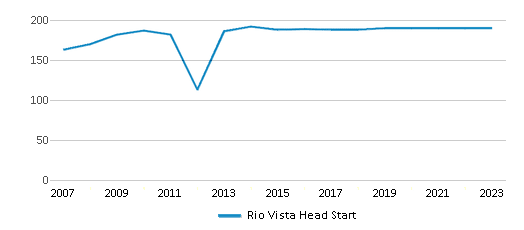
Gender %
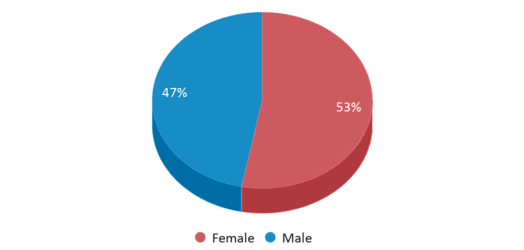
Total Classroom Teachers (12-13)
2 teachers
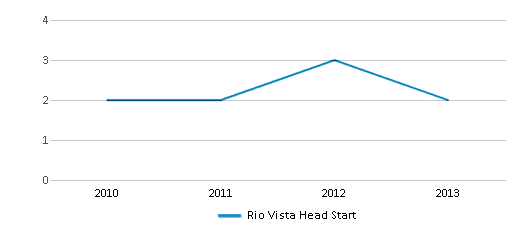
School Rankings
Student : Teacher Ratio
n/a
14:1
American Indian
1%
n/a
Asian
n/a
6%
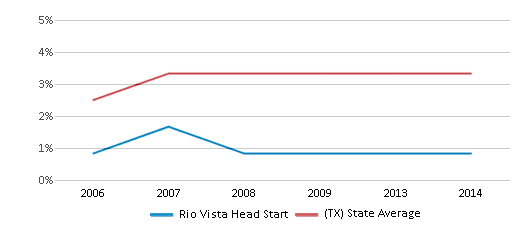
Hispanic
79%
53%
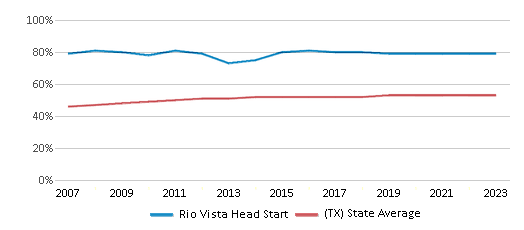
Black
5%
13%
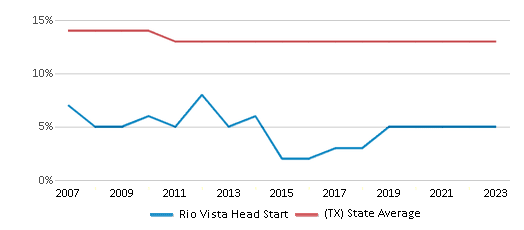
White
15%
25%
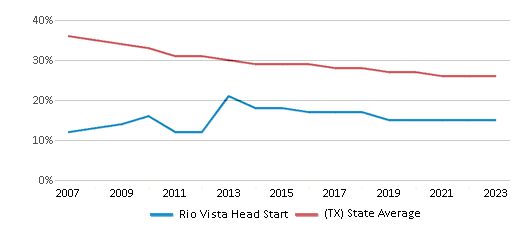
Hawaiian
n/a
n/a
Two or more races
n/a
3%
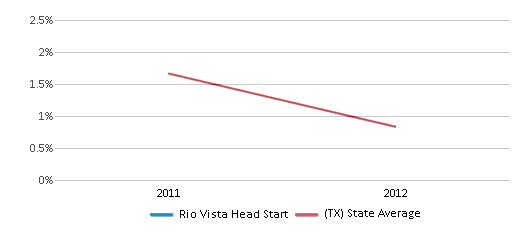
All Ethnic Groups
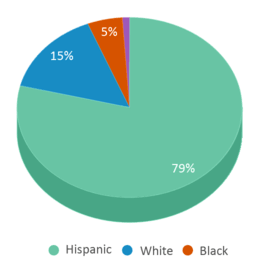
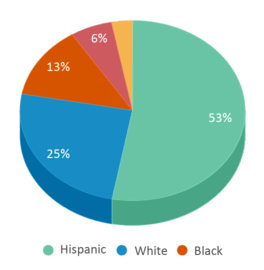
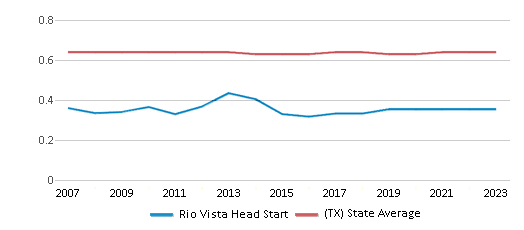
Eligible for Free Lunch
9%
57%
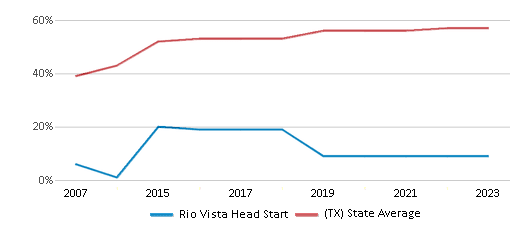
School Statewide Testing
School District Name
Source: National Center for Education Statistics (NCES), TX Dept. of Education
Frequently Asked Questions
How many students attend Rio Vista Head Start?
190 students attend Rio Vista Head Start.
What is the racial composition of the student body?
79% of Rio Vista Head Start students are Hispanic, 15% of students are White, 5% of students are Black, and 1% of students are American Indian.
What grades does Rio Vista Head Start offer ?
Rio Vista Head Start offers enrollment in grades Prekindergarten
What school district is Rio Vista Head Start part of?
Rio Vista Head Start is part of San Angelo Independent School District.
Recent Articles

What Is A Charter School?
Explore the world of charter schools in this comprehensive guide. Learn about their history, how they operate, and the pros and cons of this educational innovation. Discover key facts about charter schools, including admission policies, demographics, and funding, as well as what to look for when considering a charter school for your child.

10 Reasons Why High School Sports Benefit Students
Discover the 10 compelling reasons why high school sports are beneficial for students. This comprehensive article explores how athletics enhance academic performance, foster personal growth, and develop crucial life skills. From improved fitness and time management to leadership development and community representation, learn why participating in high school sports can be a game-changer for students' overall success and well-being.

February 05, 2025
Understanding the U.S. Department of Education: Structure, Impact, and EvolutionWe explore how the Department of Education shapes American education, from its cabinet-level leadership to its impact on millions of students, written for general audiences seeking clarity on this vital institution.





